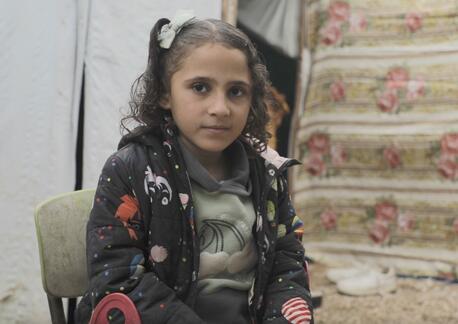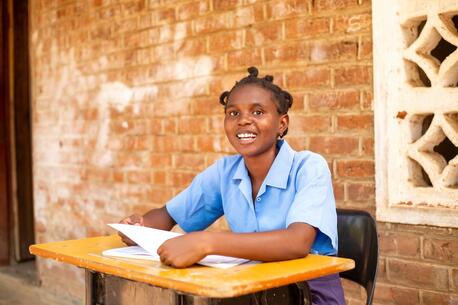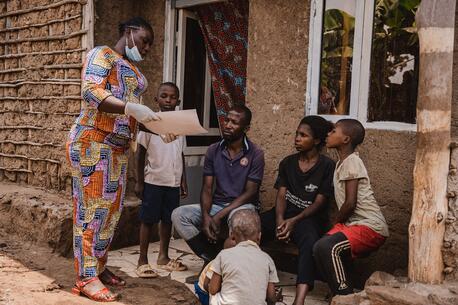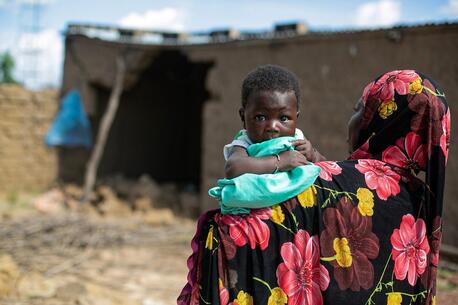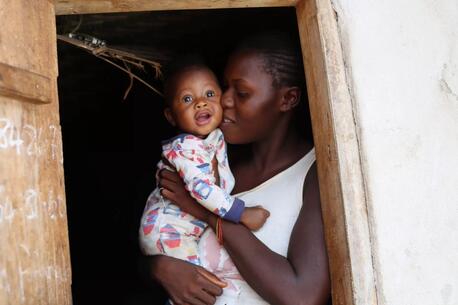
UNICEF in Sierra Leone
Sierra Leone, a low-income country on the west coast of Africa, has made progress towards many sustainable development goals. Yet children continue to face high risks due to climate change, poverty and other threats. How UNICEF is working with the Government of Sierra Leone and other partners to improve children's lives and to safeguard their rights.
Humanitarian needs in Sierra Leone
Since emerging from a protracted civil war in 2002, Sierra Leone has experienced positive social and economic growth. The nation's GDP has more than tripled. Maternal, infant and child mortality rates have improved. Many more children are in school.
Yet humanitarian and development challenges remain for the nation of nearly 9 million situated between Guinea and Liberia on Africa's Atlantic coast. Sierra Leone is on the front lines of climate change. Landslides and droughts are increasingly common. There have been health epidemics, most notably the 2014 Ebola scare. The COVID-19 pandemic hit the nation hard.
Poverty, hunger and violence continue to threaten children's health and well-being. Almost 60 percent of the population of Sierra Leone lives below the national poverty line, while 13 percent lives in extreme poverty. More than 60 percent of the population lack adequate food, and close to 40 percent lack access to safe water. More than a quarter of all children under age 5 are malnourished to the point of stunting.
UNICEF works closely with the government to strengthen social programs and services children rely on to survive and thrive. UNICEF also works in communities, supporting interventions aimed at building climate resilience and safeguarding children's rights.
Tackling malnutrition and other effects of poverty in Sierra Leone
To improve child nutrition, UNICEF works alongside the Ministry of Health and other partners to provide children with a range of nutrition support and services, focusing on children under age 5 and their families.
"The first five years of a child's life are crucial for their development," explains Fatmata Turay, a UNICEF-supported community health worker. "Our goal is to make sure every child gets the nutrition they need during this critical period."
UNICEF also works with the government to debunk taboos that discourage mothers from breastfeeding, and to achieve other forms of social and behavioral change through public information campaigns and community outreach.
Other ongoing UNICEF-supported efforts aim to equip families and health workers with knowledge and tools to detect early signs of malnutrition and take proactive measures; strengthen prevention with counseling on best feeding practices; and ensure timely treatment for severe acute malnutrition with Ready-to-Use Therapeutic Food (RUTF).
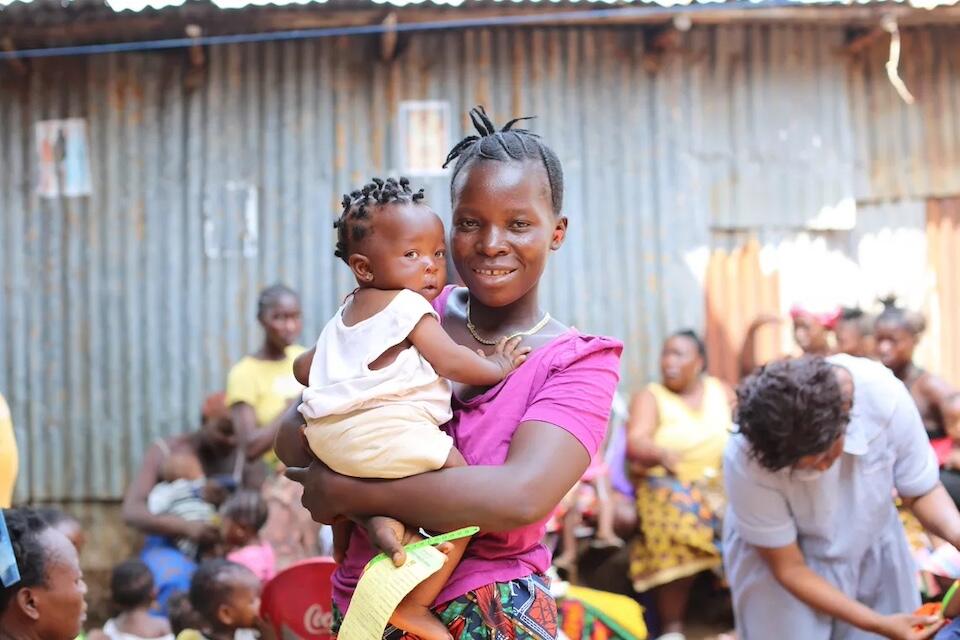
Eight-month-old Hawanatu is one of over 1 million children reached with a dose of vitamin A in 2023 through a UNICEF-supported campaign. The girl licked her lips as Nurse Betty Kamanda gently administered the supplement. Then Kamanda showed Hawanatu’s mother, Isatu Kabia, how to use the mid-upper arm circumference (MUAC) measuring tape to check her daughter’s nutritional status.
"I am now able to monitor Hawanatu's health and take her to the health center for medical attention if needed," Kabia said.
Improving maternal and child health in Sierra Leone
To help reduce the risks faced by women during pregnancy, UNICEF partnered with the government to improve access to quality health services across the country through the Free Health Care Initiative (FHCI), launched in 2010. The program has effectively ramped up the provision of free medical supplies to pregnant women as well as lactating mothers, children under age 5, people with disabilities and survivors of Ebola, all across the country.
UNICEF also supports trainings for health workers to improve newborn health care services. One training course helped equip community health nurses at hospitals in Freetown, Bo, Makeni and Kenema to more effectively care for and treat premature babies and other neonates with life-threatening conditions — saving lives.
In April 2024, Sierra Leone became the third country, after Cameroon and Burkina Faso, to introduce and roll out the malaria vaccine, after receiving 550,000 doses procured by UNICEF with funding from GAVI — a game changer for improving child survival in the country.
Immunization services in villages and rural communities have improved through the use of solar fridges, provided by UNICEF.
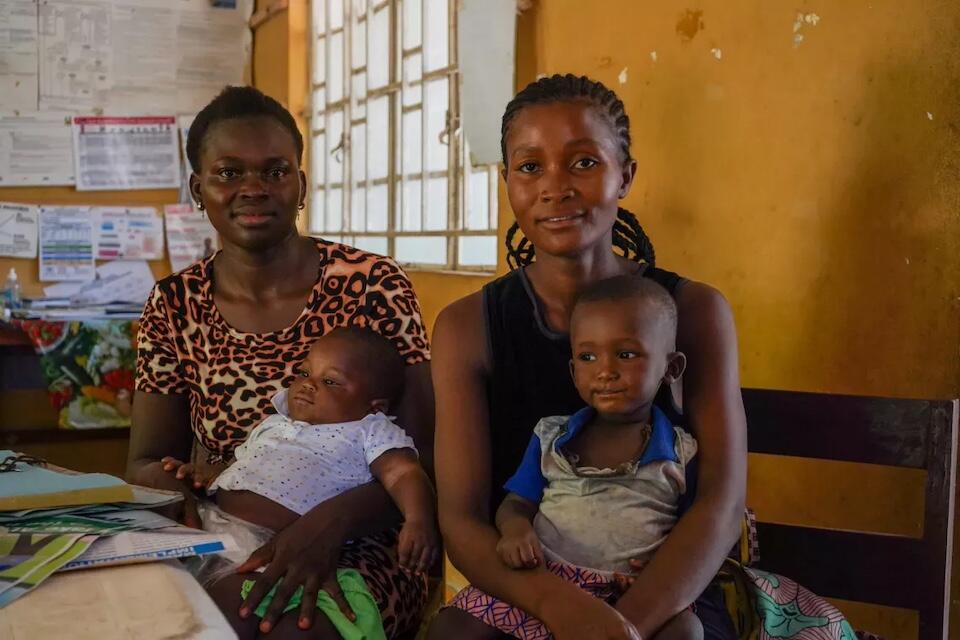
Protecting children's rights in Sierra Leone
Female genital mutilation (FGM) remains widespread in Sierra Leone, with nine out of 10 girls undergoing the procedure. To combat the practice, UNICEF has continued to help collect data on its prevalence while working to change attitudes, creating platforms for public discussion and scrutiny that provide space for opposing views to be aired and highlight the health, economic and social benefits of ending FGM.
In July 2024, Sierra Leone enacted legislation making marriage illegal for anyone under age 18, marking an important milestone in longtime advocacy efforts supported by UNICEF and other partners in a broader global initiative to ban the practice. (Sierra Leone is one of 12 countries participating in the UNFPA-UNICEF Global Program to Accelerate Action to End Child Marriage. Sierra Leone is home to 800,000 child brides, 400,000 of whom were married before age 15.)
To further strengthen the environment for child protection, UNICEF assisted in rolling out a new gender-baed violence information management system in three districts and supported a review of a new national strategy for reducing teen pregnancy. These two investments, along with tailored training of hundreds of frontline personnel and enhanced institutional capacities, reached tens of thousands of children in 2023 with extended child protection services.
Preventing violence, promoting peace through youth engagement
UNICEF is also involved in an ongoing project to promote peace and build social cohesion by educating young people about violence prevention, equipping them with life skills and encouraging their civic engagement. Outreach teams visit schools to discuss issues such as the prevention of sexual violence and drug abuse.
“We also educate parents on adopting a non-violent approach to disciplining and interacting with their children," says Isatu Kamara, an outreach officer. Violent discipline at home has long been the norm in the country for children ages 1 to 14.
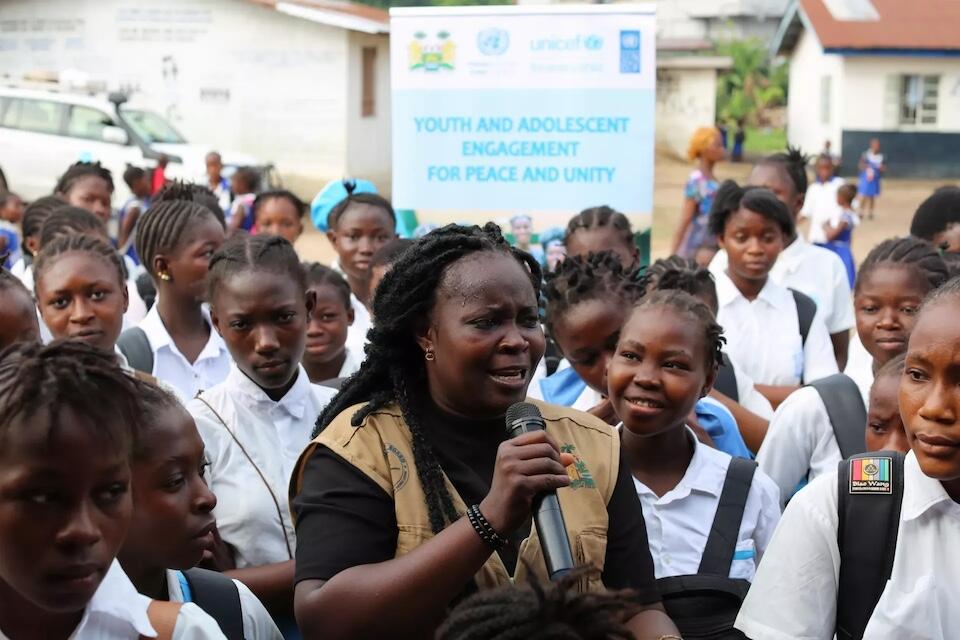
Supporting education and Early Childhood Development in Sierra Leone
Ensuring access to quality education remains a challenge in Sierra Leone. Secondary school student retention and completion rates are improving yet still low due to a number of factors, including poverty and gender discrimination. Many children live too far away from the nearest school.
UNICEF has been working with local authorities and other partners to expand preschool education, constructing Early Childhood Development (ECD) centers and training thousands of new preschool teachers.
“We must start to build the foundation for a child’s learning journey in their early years of life,” UNICEF Representative in Sierra Leone Rudolf Schwenk explains. “By investing in pre-primary education our aim is to expand universal and equitable access to quality Early Childhood Education, contributing to building the future for children and the human capital the country needs.”
UNICEF provides both technical and financial support to other government-led education initiatives, including enrollment drives aimed at vulnerable out-of-school children and the distribution of learning materials. Other programs help prepare pregnant girls to return to school after giving birth.
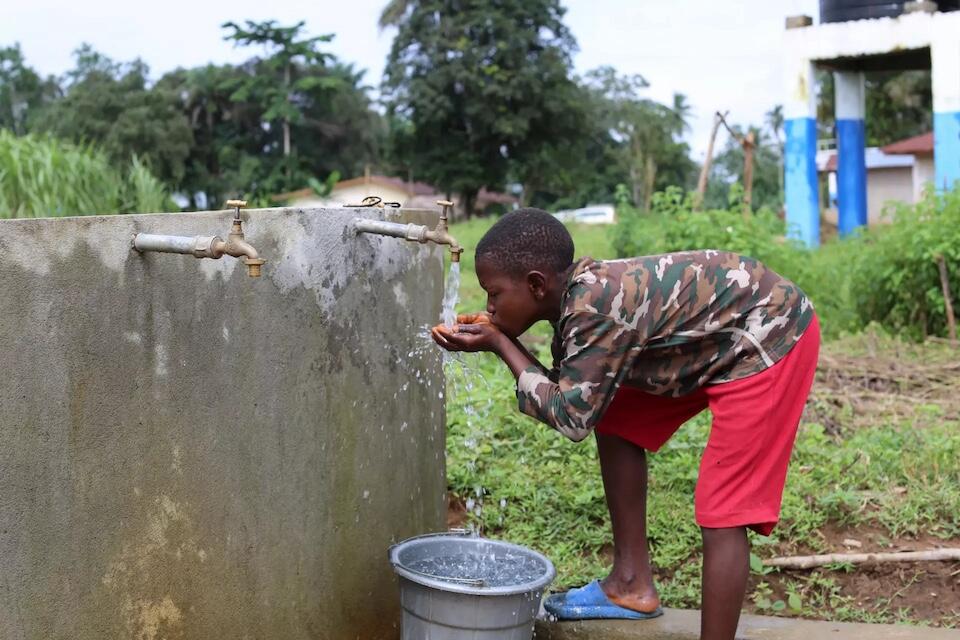
UNICEF Sierra Leone/2023/Mason
The importance of water, sanitation and hygiene (WASH) programs
Water, sanitation and hygiene (WASH) is another priority program area for UNICEF in Sierra Leone. UNICEF helped officials develop a national strategy for improving WASH services, and is helping to map out water resources and sanitation needs.
UNICEF is committed to continuing to drive progress toward the goal of universal access, pursuant to Sustainable Development Goal 6, which requires overcoming disparities in basic water supply services among regions and between urban and rural areas.
Sierra Leone is one of over 190 countries and territories where UNICEF is committed to creating a more equitable world for children. Learn more about what UNICEF is doing to ensure children are healthy, educated, protected and respected.
Help UNICEF increase its impact for children globally. Donate today.
